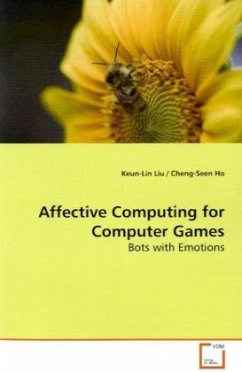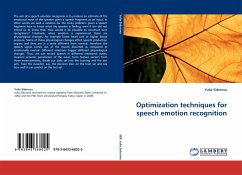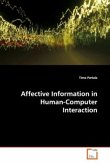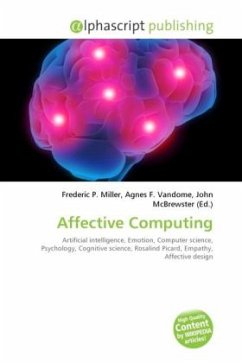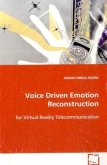Just like traditional AI applications, game AI mainly
focuses
on rational inference. But in the real world, human
decision making
is not only involving rationality, but also sense. In
this book, we
propose an architecture for the bot designers to
include affective
computing in a game bot by attributing emotions to
the bot. The
architecture is based upon a variety of theories,
including the
famous OCC model. It treats Joy, Fear, Anger,
Disgust, and Distress
as five basic emotions. It uses three emotional
variables, namely,
Desirability of an event, Blameworthiness or
Praiseworthiness of an
action, and Appealingness of an object, to evaluate
how a specific
emotion is affected by the environment. In addition
to an ordinary
Rational Action Engine, which controls the rational
behavior of a
bot, we add an Emotional Action Engine in the
architecture to make
the emotional behavior possible. An Action Arbitrator
is equipped to
decide, given a specific time and space, whether a
bot should follow
the rational or emotional inference. The arbitrator
simulates how
humans solve the conflicts between reason and emotion.
focuses
on rational inference. But in the real world, human
decision making
is not only involving rationality, but also sense. In
this book, we
propose an architecture for the bot designers to
include affective
computing in a game bot by attributing emotions to
the bot. The
architecture is based upon a variety of theories,
including the
famous OCC model. It treats Joy, Fear, Anger,
Disgust, and Distress
as five basic emotions. It uses three emotional
variables, namely,
Desirability of an event, Blameworthiness or
Praiseworthiness of an
action, and Appealingness of an object, to evaluate
how a specific
emotion is affected by the environment. In addition
to an ordinary
Rational Action Engine, which controls the rational
behavior of a
bot, we add an Emotional Action Engine in the
architecture to make
the emotional behavior possible. An Action Arbitrator
is equipped to
decide, given a specific time and space, whether a
bot should follow
the rational or emotional inference. The arbitrator
simulates how
humans solve the conflicts between reason and emotion.

